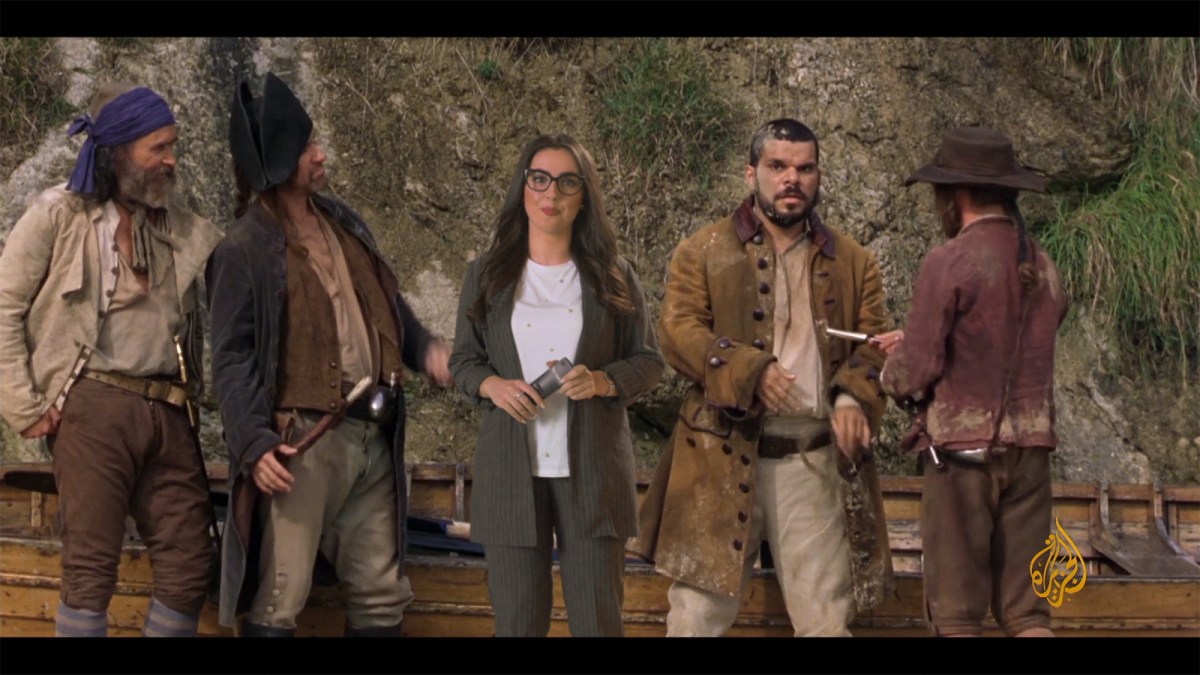It was found that viewers of television fiction works in 2021 in several European countries prefer to attend those produced locally, according to a study conducted by the Media Regulatory Authority and its results were published last Thursday.
In a study conducted by the authority based on data from the international service "Glance" to measure the performance of the media, the authority indicated that the top ten places in France last year "include only locally produced fiction works", just as is the case in Italy, Germany and Britain, where they are also dominated Works produced in these countries.
Until 2016, American and British productions represented half of the top ten productions that attracted the most viewers.
And between 2017 and 2019, the number of American series on this list decreased to about 3, according to the authority.
Critics say that when the novelist writes international works, he ignores "local obstacles" so as not to stand in the way of cross-border spread and adopts an overly simplified and easy language. Capitalist trends who get funding from big companies, and so the global narrative loses much of its creativity and uniqueness.
The American poet Adam Kirsch, author of the book “The Global Novel: A Narrative Approach to the World in the Twenty-first Century,” advises writers to plan to write the local experience in a universal spirit.
TV fiction productions
Across Europe, “audio-visual fiction is not in the same place,” according to a study by Arcom that analyzed the performance of the most popular television productions in Spain, Italy, Germany and the United Kingdom.
These productions appear "less attractive" in Spain;
This is an exception compared to other countries surveyed, where the top ten works mainly consist of relatively old foreign television films that aired on weekends during the afternoons.
Thus, last year's best-performing fiction attracted 6% of viewers, compared to an average of 15% in the other countries surveyed.
A common point among the five countries included in the analysis is the return to the decline in individual television viewing times after a remarkable rise in these rates in the first months of the pandemic in 2020.
While this indicator slightly exceeds the 2019 level in Italy (4 hours and 9 minutes), France (3 hours and 39 minutes) and Germany (3 hours and 33 minutes), the situation is not the same in Spain (3 hours and 30 minutes, down 27 minutes) nor in the United Kingdom ( 2 hours 53 minutes (down 19 minutes) and are the countries with the lowest television viewing rates.
Novel and cinema
An episode (20/12/2019) of the "About Cinema" program on Al Jazeera channel was broadcast;
Light on the technical controversy regarding the transformation of literary novels into films.
Every time he goes out to the cinema, a movie adapted from a literary work is accompanied by a comparison between a book whose papers may reach hundreds of pages and an artistic product that does not exceed two hours. Is it a fair comparison?
Contrary to what everyone imagines, the relationship of films with literature began long before the talking cinema. The first attempt to quote a literary work was in 1896, when a chapter of a French novel was turned into a silent scene.
The works of British writer William Shakespeare attracted the attention of film directors.
The cinema did not leave a play for him without presenting it with more than one treatment, which could happen in the future with Harry Potter novels, comic books and superheroes.
In the Arab world, famous foreign films adapted their stories from Arab literary works. The story “The Adventures of Sinbad” by Mahmoud Qassem gained a great deal of fame in international cinema, as it was presented by Columbia in 3 films.
The story of Aladdin and the Magic Lamp, written by Ahmed Swailem, found its way to the cinema through Disney twice, the first in its famous animated movie in 1992, and the second, which was recently produced in a live version, starring the Canadian actor of Egyptian origin, Mina Masoud.
The novel "Midaq Alley" by the Egyptian writer Naguib Mahfouz was turned into the movie (Midaq Alley), which means "The Alley of Miracles", and its events took place in the capital, Mexico, instead of Cairo.
The Sudanese doctor and novelist Amir Taj Al-Sir considered it unfair to compare the literary description in the novel with the directorial vision of the film, explaining that the director uses new tools and vision to express the idea presented in the novel.
Taj Al-Sir pointed out that the film is difficult to accurately express the inner feelings or to reflect the accurate eloquent analogies previously expressed by the writer in his novel or literary work.

